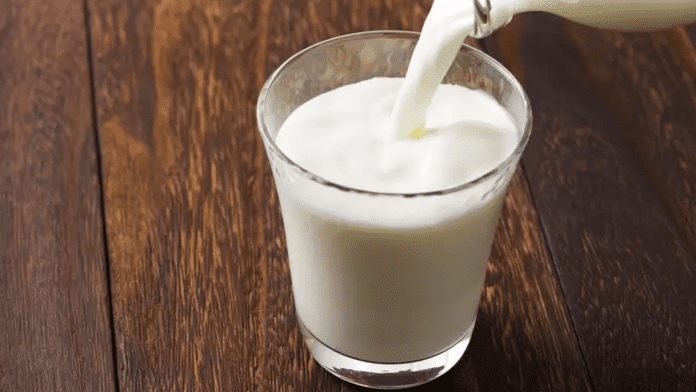When it comes to weight gain, there are plenty of foods and drinks that are commonly touted as effective for packing on the pounds. Milk is one of these foods, often recommended as a high-calorie beverage that can help you reach your weight gain goals. But is milk really a good choice for weight gain?
In this article, we’ll take a closer look at the science behind milk and weight gain
The Nutritional Profile of Milk
Milk is a rich source of a variety of nutrients, including calcium, vitamin D, and protein. These nutrients are essential for maintaining bone health, supporting immune function, and building and repairing muscle tissue.
In addition to these important nutrients, milk is also high in calories. One cup of whole milk contains around 150 calories, making it a calorie-dense beverage that can contribute significantly to daily caloric intake.
For those looking to gain weight, consuming more calories than your body burns is essential. Milk can be a convenient and tasty way to add extra calories to your diet without feeling too full or bloated.
The Pros of Drinking Milk for Weight Gain
- High in Calories
As mentioned, milk is a calorie-dense food that can help you reach your daily caloric goals more easily. For those looking to gain weight, consuming more calories than you burn is essential, and milk can be a convenient way to add extra calories to your diet without having to eat large amounts of food.
- Rich in Nutrients
Milk is a good source of several important nutrients, including calcium, vitamin D, and protein. These nutrients are essential for maintaining bone health, supporting immune function, and building and repairing muscle tissue. For those looking to gain weight, ensuring that you are getting adequate nutrition is crucial to supporting overall health and wellbeing.
- Convenient
Milk is a widely available and convenient beverage that can be easily incorporated into your daily routine. Whether you drink it on its own or use it as a base for smoothies or protein shakes, milk is a versatile and easy-to-use food that can help you reach your weight gain goals.
The Cons of Drinking Milk for Weight Gain
- Lactose Intolerance
For some people, drinking milk can cause digestive issues due to lactose intolerance. Lactose intolerance is a common condition where the body is unable to digest lactose, a sugar found in milk and other dairy products. Symptoms of lactose intolerance can include bloating, gas, and diarrhea, and can make it difficult to consume large amounts of milk on a regular basis.
- High in Saturated Fat
While milk is a good source of nutrients, it is also high in saturated fat. Drinking large amounts of whole milk can contribute to high levels of saturated fat intake, which can increase the risk of heart disease and other health issues over time.
- Not Suitable for Vegans or Those with Dairy Allergies
Milk is not a suitable option for those who follow a vegan diet or have dairy allergies. For these individuals, alternative sources of nutrients and calories should be sought out to support weight gain goals.
Alternatives to Milk for Weight Gain
While milk can be a convenient and effective way to add extra calories to your diet, there are plenty of alternative options that can provide similar benefits. Here are a few examples:
- Nut Milk
Nut milk, such as almond milk or cashew milk, can be a good alternative to cow’s milk for those who are lactose intolerant or vegan. Nut milk is typically lower in calories and fat than cow’s milk, but can still provide a good source of nutrients and calories.
- Soy Milk
Soy milk is a popular alternative to cow’s milk that is rich in protein and lower in fat. It is also a suitable option for vegans and those with dairy allergies.
- Protein Shakes
Protein shakes are a convenient and easy way to add extra calories and nutrients to your diet. They can be made with a variety of bases, such as milk alternatives or water, and can be customized with different types of protein powders and flavors. - Avocado
Avocado is a high-calorie fruit that can be added to smoothies or eaten on its own. It is also rich in healthy fats and nutrients, making it a good option for those looking to gain weight in a healthy way. - Nuts and Seeds
Nuts and seeds are calorie-dense and nutrient-rich, making them a good option for those looking to gain weight. They can be added to meals or snacks, or eaten on their own as a convenient and healthy snack option.
Milk can be a convenient and effective option for those looking to gain weight, thanks to its high calorie and nutrient content. However, it may not be suitable for everyone due to lactose intolerance or dietary restrictions. Fortunately, there are plenty of alternative options available that can provide similar benefits, including nut milk, soy milk, protein shakes, avocado, nuts, and seeds. By incorporating these foods into your diet and focusing on getting adequate nutrition, you can support healthy weight gain and overall wellbeing.





